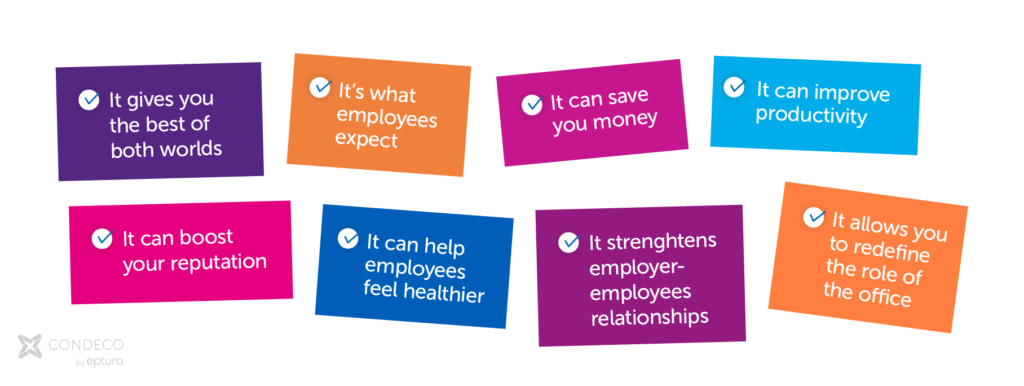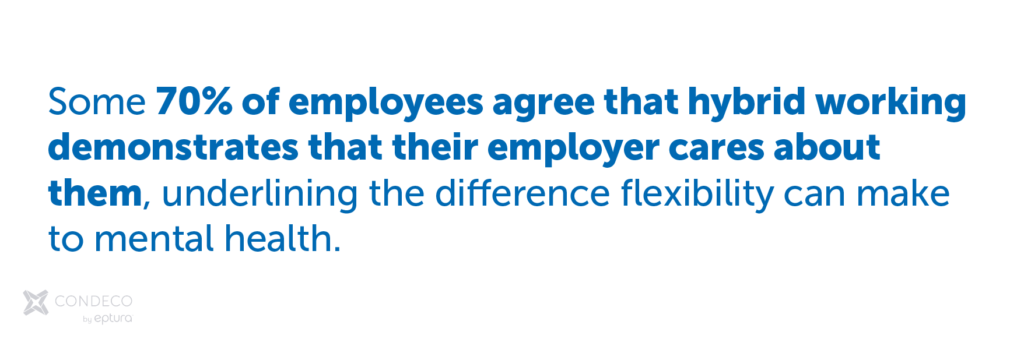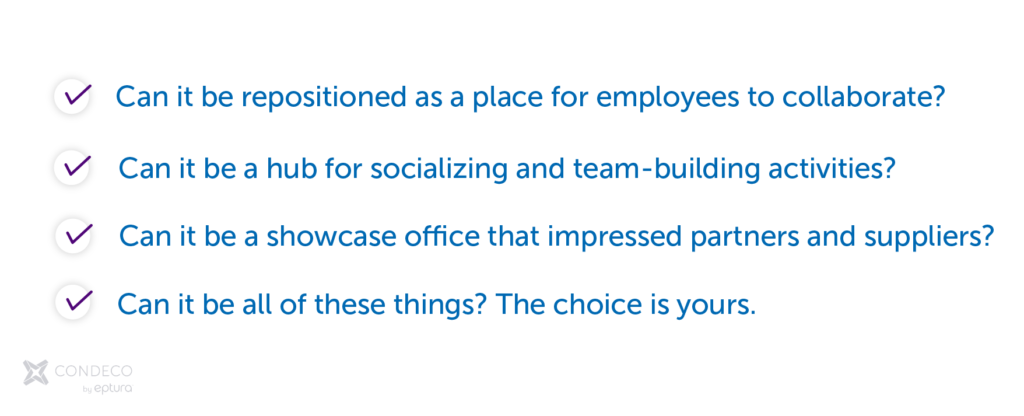
There’s been plenty of buzz in the media and across the world of work in the last couple of years about hybrid work (or flexible working, as it’s also often called). Opinions on it remain mixed: some feel that it’s a revolution for the business world, while others take the view that the old office-based model wasn’t broken, and so it didn’t need fixing.
If you’re in the latter group, then there’s a chance that you and your business are missing out on a trend that can be far more beneficial than it might seem. Here are eight reasons why hybrid working points towards a bright future for employers and employees alike:

It gives you the best of both worlds

Nobody said you have to stick with either office work or remote work. There are advantages to each, and a good hybrid work policy allows you to exploit both. You can give your employees all the flexibility they want in where and when they work, and allow them to fit their job around their personal life much better. And at the same time, in the shape of the office, you can also give them a place where they can collaborate, socialize, or get some space to focus whenever they feel they need it.
It’s what employees expect
Hybrid work has become so popular that it’s now become an expectation when candidates are applying for new jobs. According to Condeco research , among those who are already working on a hybrid basis, 85% of them want to continue with a model where they are only required in the office between one and four days a week. Employers unable or unwilling to offer this will find themselves on the back foot when trying to attract and retain talented employees.
It can save you money
A lower headcount in the office each day means you don’t need all the office space you had pre-pandemic. This means you can downsize your real estate, and make savings on rental, energy, maintenance and other overheads. Alternatively, you can repurpose your existing space so that it’s more useful to hybrid workers, with more bookable work pods, or breakout zones for informal collaboration.
It can improve productivity

One of the most commonly cited benefits of hybrid working in our research is increased productivity. Many employees feel that being able to work where and when they choose means they can pick whichever place helps them focus. And that isn’t always necessarily working from home: employees in small or shared accommodation might find that working from the office is far more suitable.
It can boost your reputation
When an employer puts a good hybrid work policy in place, word gets around, both within an industry and among customers who want to deal with a socially responsible company. This positive PR can help win new business, improve employee satisfaction, and stand a brand out from its competitors.
It can help employees feel healthier

At a time when mental well-being is in the spotlight, hybrid work can help employees work in ways that don’t stress them out or compromise their lives. Some 70% of employees agree that hybrid working demonstrates that their employer cares about them, underlining the difference flexibility can make to mental health.
It strengthens employer-employee relationships
Connected to the previous point, giving staff the autonomy to work where and when they want can make them feel valued and trusted by their employer. In the past, managers didn’t trust employees to do their jobs from home, but now, 80% have that trust and find their employees are just as productive in doing so. This can help bonds be built between managers and employees, on the basis that hybrid work can be a force for good.
It allows you to redefine the role of your office




